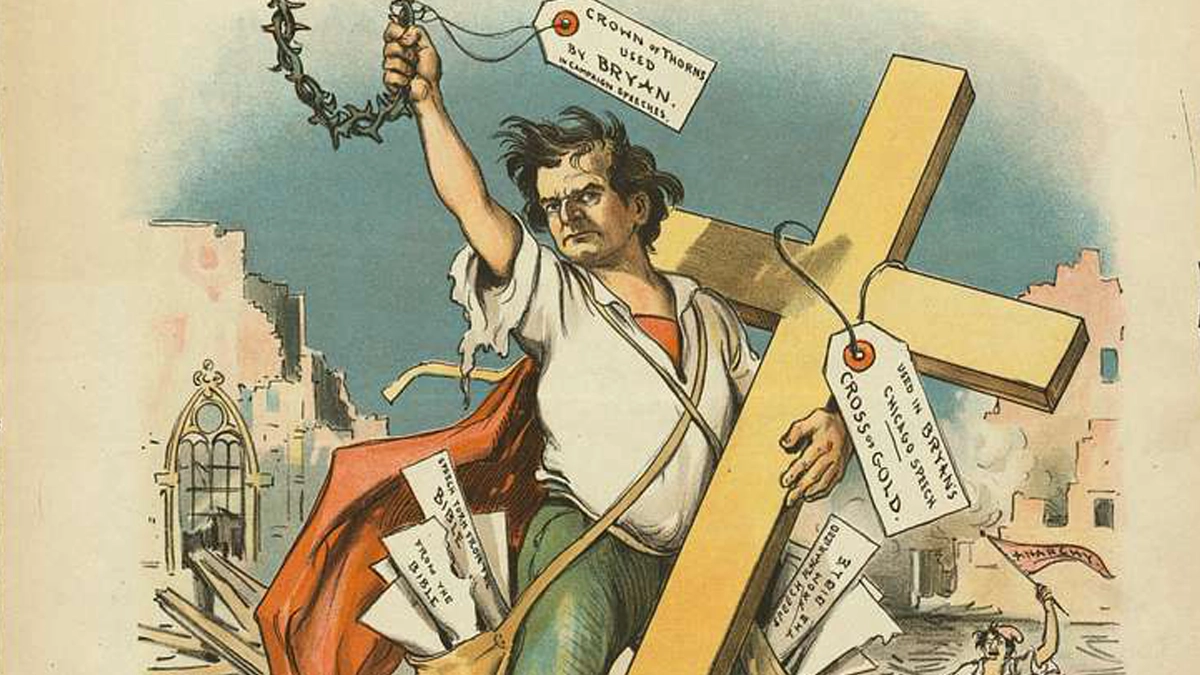
By the 1890s, the United States Federal Government’s support of a de facto gold standard had ignited a bitter partisan divide. Democrats, led by Nebraska Congressman William Jennings Bryan (D-NE1), railed against the tight money standard and advocated that the country return to its bimetallist roots. Bryan supported the 16:1 silver-to-gold ratio and felt that returning to it would ease the financial hardship that American workers and farmers were feeling at the time.
These sentiments grew as the country reeled from the Panic of 1893.
Bryan’s Cross of Gold speech, given on the floor of the Democratic National Convention on July 9, 1896, and widely considered one of the greatest political speeches in American history, helped the then-36-year-old politician secure his party’s nomination for president over Richard “Silver Dick” Bland.
Support for Bryan amongst party members was not absolute, however. Conservative Democrats from the Northeast and the Midwest who were known as “Gold Democrats” declined to support him in the general election.
Some of this lack of support was made up for by the Populist and Silver parties, which went for Bryan.
Nevertheless, it wasn’t enough to overcome the support that pro-gold Republican William McKinley enjoyed across the country. McKinley soundly defeated Bryan, taking 51% of the popular vote and 271 electoral college votes to Bryan’s 176. Bryan’s support on the electoral map largely resembles the support of the modern Republican Party.
The 1896 election was not the only time Bryan and McKinley were joined in political battle. The two men would campaign against each other again in 1900, but in that campaign, the politics had shifted and Bryan ran on an anti-imperialist platform. McKinley won again – only to be cut down six months into his term by the anarchist assassin Leon Czolgosz.
Bryan remained a key figure in Democratic politics over the course of the next two decades and would eventually serve as Secretary of State for President Woodrow Wilson. He would often revisit his famous speech, recording various portions of it for commercial release.
The following is the complete Cross of Gold speech as read by CoinWeek Editor Charles Morgan:
Cross of Gold (Text of the Speech)
Read More:William Jennings Bryan’s Cross of Gold Speech
2024-03-18 13:04:30
